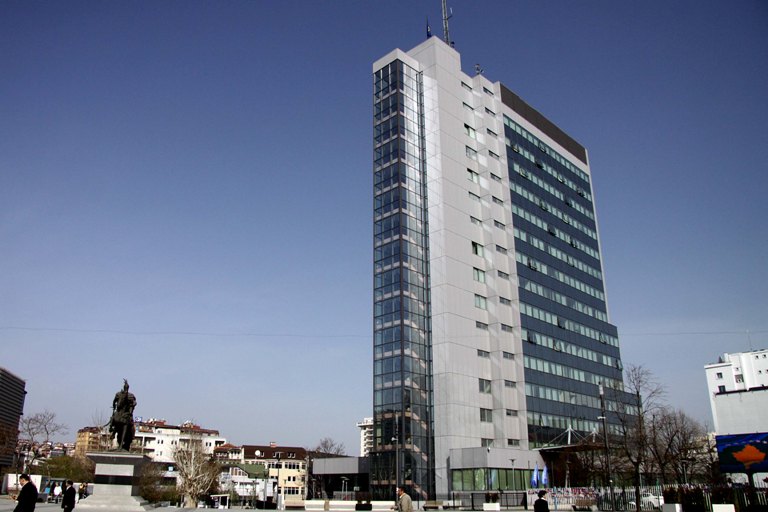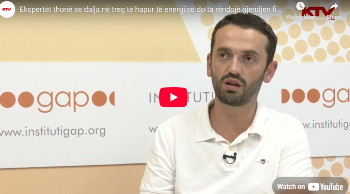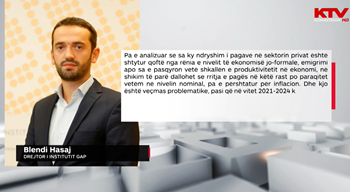GAP, INDEP & GLPS oppose Government’s decision on salary increase in the public sector
23/12/2017
Civil society organizations GAP, INDEP & GLPS oppose Governments decision no. 04/20 of 20 December 2017 on salary increase in the public sector, which has seen Prime Ministers salary doubled and at the same time salaries of deputy prime ministers, ministers, deputy ministers and others public officials have significantly increased.
The government decision was not justified and as such is unacceptable. At a time when Kosovo is experiencing slow economic growth, and rising budget spending; it is unacceptable that the Prime Ministers salary is bigger than any of his counterparts in the neighboring countries, which have significantly higher economic development than Kosovo.
Any decision to increase the salaries in the public sector should reflect the overall economic development, should be based on the minimum wage and the GDP per capita of the country. There is no justification for increasing salaries when the last two indicators have not improved in Kosovo. Prime Minister Haradinaj instead of finding incentives that would stimulate economic development in Kosovo, he increased salaries for himself and his cabinet. Prime Ministers justification that wages have increased due to difficult nature of his job and spending involved in his daily work are unreasonable justifications. If they are unable to cope with the job requirements, it is better to give up their positions instead of harming the state budget for personal gain.
Just a short time ago, the Draft Concept Paper on Public Sector Salaries was sent, which aimed to create a unified payroll system in the public sector and would therefore eliminate the specific legal acts that determine salaries, and consequently will reduced the possibility of manipulation and misuse in determining salaries. However, the Governments recent decision to increase the salaries of the categories mentioned above undermines the purpose of drafting this concept paper. This salary increase has exceeded the proposal of the Draft Law on Wages, which was withdrawn by the Government in March 2017 and this Draft Concept Paper, where the highest coefficient is foreseen to be 12. This decision is also contrary to the Governments own efforts through a decision on the key priorities of the European Agenda for Reforms for 2018, pledges to adopt the Law on Salaries in June 2018. The Law on Salaries is part of a legal package for public administration reform that is being drafted by the Government, namely the Ministry of the Public Administration.
Public sector wage growth comes at a time when Kosovos GDP in 2016 is estimated at be around 6 billion euros and the minimum wage in the country of 130-170 euros. GDP in the first quarter of 2017 has experienced a real increase of 3.9% compared to the same quarter of 2016, while the countrys minimum wage continues to be the same since 2010. While GDP per capita in Kosovo is estimated to be 3,491 euros. If we put the Prime Ministers salary in the countries in the region that are in the EU and other countries with a developed economy in relation to the respective minimum wage, it is only a much stronger reasoning that Haradinajs decision is unacceptable.
- In Slovenia, the minimum wage is 804 euros, while the prime ministers wage is 5,300 euros, so the salary of the head of the Slovenian government has a salary of 6.5 times higher than the minimum wage.
- In Croatia, the minimum wage is 440 euros, while the prime ministers wage is 4,850 euros, so the salary of the head of the Croatian government is 11 times higher than the minimum wage.
- In Macedonia, the minimum wage is 240 euros, the prime ministers wage is 1,300 euros, so the salary of the head of the Macedonian government is 5 times higher than the minimum wage.
- In Montenegro, the minimum wage is 290 euros, the prime ministers wage is 1,130, so the salary of the head of the Montenegrin government is 4 times higher than the minimum wage.
- In Serbia, the minimum wage is 190 euros, the prime ministers wage is 1,000 euros, so the salary of the head of the Serbian government is 5 times higher than the minimum wage.
- In Portugal, the minimum wage is 650 euros, the prime ministers wage is 6,500 euros, so the salary of the Portuguese government leader is 10 times higher than the minimum wage.
- In the Netherlands, the minimum wage is 1,600 euros, the prime ministers wage is 13,000 euros, so the salary of the head of the Dutch government is 8 times higher than the minimum wage.
- In Kosovo, the minimum wage is 130-170, depending on the age group, the prime ministers wage is 2.950 euros, so the salary of the head of the Kosovar government is 22 times higher, RESPECTIVELY SEVENTEN TIMES HIGHER than the minimum wage in Kosovo.
The governments decision to increase salaries in the public sector without taking the above indicators into account is unreasonable and as such should be withdrawn.
We, the civil society organizations, call on the Government of Kosovo to remember that their task is not to improve their personal well-being, but to the welfare of society in Kosovo and that this is not achieved through raising personal wages but with the encouragement of general economic development in the country. Only with the growth of the economic development of the country, from which the citizens of Kosovo would benefit would the increase of salaries of public officials be justified.















